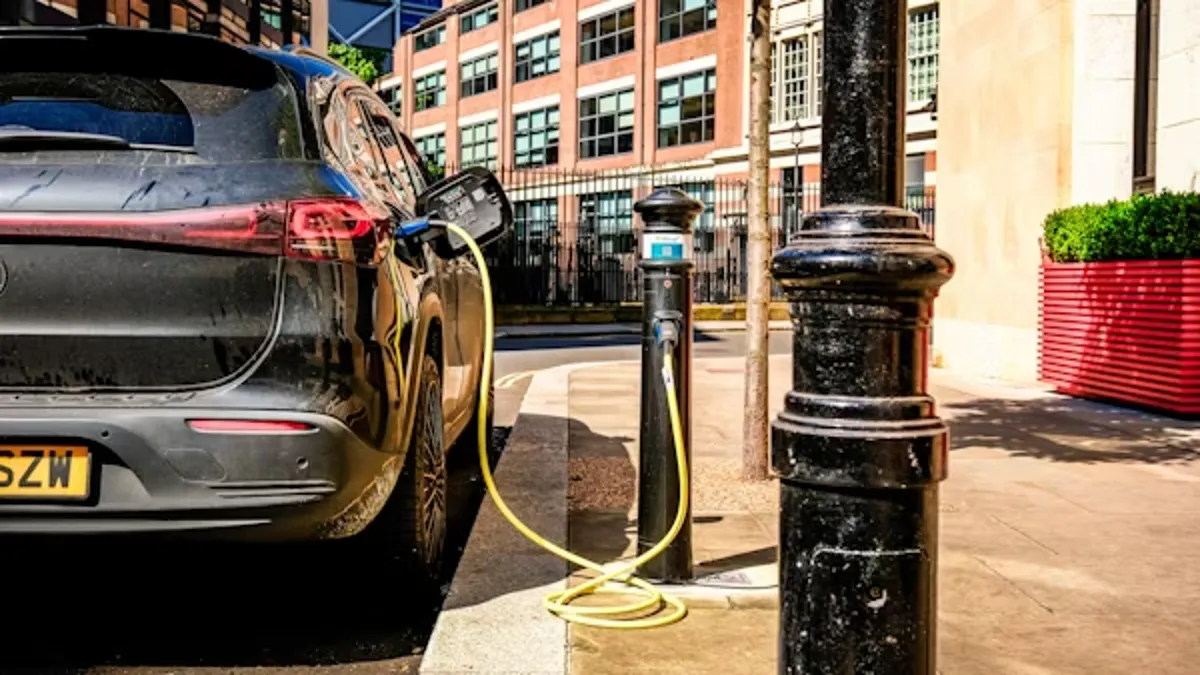The term AdBlue delete has gained notoriety in the world of diesel vehicles, sparking debate among mechanics, drivers, regulators, and environmentalists alike. The searcher’s intent is simple yet urgent: to understand what AdBlue delete is, why people consider it, and what consequences come with it. Within the first 100 words, let’s be clear—AdBlue delete refers to disabling or removing the selective catalytic reduction (SCR) system that relies on AdBlue (a urea-based solution) to reduce harmful nitrogen oxide emissions in diesel engines. While some drivers argue it improves performance, lowers costs, or prevents breakdowns, the practice is illegal in many regions, raises environmental concerns, and can bring severe legal and financial penalties. This article provides an in-depth look at every dimension of the AdBlue delete debate, blending technical clarity with cultural context, so readers can make truly informed decisions.
The Role of AdBlue in Modern Diesel Engines
AdBlue is not a fuel additive but a carefully engineered solution of urea and deionized water. It is injected into the exhaust stream of diesel engines equipped with selective catalytic reduction systems. When exposed to high temperatures, AdBlue breaks down into ammonia, which reacts with nitrogen oxides (NOx) in the exhaust to form harmless nitrogen and water vapor. This process drastically reduces NOx emissions, one of the major pollutants linked to respiratory illness and smog. Without AdBlue, a modern diesel vehicle cannot comply with Euro 6 or similar global emissions standards. In short, AdBlue is not a luxury—it is a necessity for making powerful diesel engines compatible with clean air legislation.
Why Some Drivers Consider AdBlue Delete
Despite its environmental importance, some vehicle owners and operators choose to disable or remove their AdBlue systems. The motivations often follow familiar patterns:
- Cost concerns: Refilling AdBlue regularly adds ongoing costs for fleet operators.
- Maintenance frustrations: Faulty sensors, crystallization, and clogging in SCR systems can cause costly repairs.
- Perceived performance gains: Some believe removing AdBlue reduces fuel consumption or engine restrictions.
- Operational convenience: Long-distance drivers dislike interruptions caused by low AdBlue warnings.
- Rural or off-road use: Certain drivers argue they need flexibility in regions where AdBlue supply is scarce.
A truck operator once summarized the sentiment: “When you’re losing money on downtime, deleting AdBlue feels like the easier solution.” Yet this short-term mindset often ignores long-term consequences.
Legal Implications
AdBlue delete is illegal in most countries, including the United States, Canada, the United Kingdom, and across the European Union. Regulations mandate that diesel vehicles must retain functional emissions-control systems. Tampering with or disabling SCR technology can lead to heavy fines, voided insurance policies, failed inspections, and in some cases, criminal charges. For fleet operators, penalties can multiply quickly, affecting both financial stability and reputation. Authorities frame this not as an issue of personal choice but as a matter of public health. A transportation regulator explained, “Deleting AdBlue is like cutting corners with seatbelts—it endangers everyone, not just the driver.”
Quotes Highlighting the Debate
- “An AdBlue delete might save a driver today, but it mortgages the future health of the planet.”
- “The frustration with AdBlue is real, but the legal risk is far greater than the cost of compliance.”
- “This isn’t about performance versus pollution; it’s about whether we take collective responsibility seriously.”
- “AdBlue technology may be imperfect, but deleting it sets us back decades in clean air progress.”
Environmental Impact
AdBlue systems exist for a reason: to reduce nitrogen oxides, among the most dangerous urban pollutants. Disabling these systems causes emissions to spike dramatically, undoing years of air quality progress. NOx contributes to respiratory illnesses like asthma, worsens cardiovascular conditions, and creates smog that impacts entire communities. Scientists have linked NOx exposure to premature deaths. Beyond human health, unchecked NOx emissions also damage ecosystems, contributing to acid rain that harms soil and waterways. As one environmental scientist observed, “One deleted truck can undo the clean-air gains of hundreds of compliant vehicles.” The environmental case against AdBlue delete is unequivocal.
Table 1: Vehicles With and Without AdBlue
| Factor | With AdBlue (SCR System) | Without AdBlue (Deleted) |
|---|---|---|
| NOx Emissions | Reduced up to 90% | High, comparable to pre-regulation diesels |
| Fuel Efficiency | Slightly lower due to SCR operation | Perceived slight increase, often overstated |
| Maintenance | Requires refilling and occasional service | Avoids SCR costs, but risks other damage |
| Legal Compliance | Meets emissions standards | Fails tests, subject to fines |
| Environmental Impact | Supports cleaner air, reduced smog | Significant NOx release, ecosystem harm |
Economic Dimensions
The temptation of AdBlue delete often starts with economics. Refilling AdBlue adds cost per mile, and system repairs can run into thousands. For small businesses running multiple vehicles, these expenses add up. Delete kits promise immediate savings, with sellers marketing them as long-term solutions. However, fines and penalties often dwarf the savings. A single compliance fine for a fleet can exceed the cost of years of AdBlue refills. Furthermore, resale values of modified vehicles drop sharply, as buyers shy away from illegal or tampered systems. What looks like savings in the short term can quickly become an expensive liability.
The Aftermarket Industry
An entire underground industry thrives around AdBlue delete kits. These range from simple software adjustments to devices that trick the vehicle’s ECU into ignoring missing components. Online, kits are marketed with claims of fuel savings, performance boosts, and hassle-free operation. However, regulators are increasingly cracking down on suppliers. In Europe, authorities have fined companies millions for promoting illegal modifications. In North America, lawsuits and shutdowns have targeted vendors. Mechanics who install these kits also face penalties. As one industry insider admitted, “The market exists because frustration is real, but enforcement is catching up fast.”
Social and Cultural Context
The AdBlue delete phenomenon reflects more than just mechanical choices; it embodies cultural debates about regulation and freedom. Many drivers, particularly in rural areas, view AdBlue requirements as bureaucratic overreach, a burden placed on working people. Others see deletes as irresponsible, sacrificing collective health for convenience. Online communities debate the issue fiercely. Some champion personal liberty in modifying their vehicles, while others stress that freedom comes with responsibility. This cultural clash mirrors wider tensions in modern society: individual autonomy versus societal obligation.
Table 2: Motivations vs. Consequences
| Motivation for Delete | Immediate Perceived Benefit | Long-Term Consequence |
|---|---|---|
| Lower operating costs | Saves money on AdBlue refills | Fines, lower resale value |
| Avoiding downtime | Prevents AdBlue-related breakdowns | Fails inspections, loss of insurance |
| Performance improvements | Slightly freer engine operation | Higher emissions, reputational damage |
| Personal freedom | Control over modifications | Legal risks, environmental backlash |
Alternatives to AdBlue Delete
For those frustrated with AdBlue systems, alternatives exist that preserve compliance and reliability:
- Preventive maintenance: Regular cleaning prevents crystallization and clogging in SCR systems.
- Quality AdBlue: Using certified solution reduces risk of sensor or injector damage.
- Software updates: Manufacturers release ECU updates to resolve AdBlue-related issues.
- Professional servicing: Trained technicians can diagnose issues without resorting to deletions.
A fleet manager once said, “The money we spent on preventive maintenance was a fraction of what a fine would cost.” These alternatives demonstrate that deletes are not the only path forward.
The Future of Diesel Technology
The rise of electric vehicles has cast doubt on diesel’s long-term role. Yet, for heavy transport, construction, and agriculture, diesel remains indispensable. Manufacturers are improving SCR systems, making them more reliable and less maintenance-heavy. Meanwhile, stricter global regulations ensure that emission compliance will only grow more demanding. Some companies explore hydrogen fuel cells and hybrid diesel technologies as cleaner alternatives. In this context, AdBlue delete looks increasingly outdated—a stopgap measure in a world moving toward sustainability.
Case Studies and Real-World Consequences
In 2019, a major logistics company in Europe faced millions in fines after inspectors found widespread AdBlue deletes across its fleet. The immediate savings on AdBlue refills had seemed worth it, but reputational damage and financial losses nearly bankrupted the firm. In North America, independent truckers have reported losing insurance coverage after insurers discovered tampered emissions systems. These real-world examples highlight how deletes may offer short-term relief but almost always lead to long-term consequences.
Conclusion: Informed Choices Matter
To answer directly: an AdBlue delete is not just a mechanical tweak; it is a decision with legal, environmental, and ethical consequences. While the frustrations around cost and maintenance are valid, the risks far outweigh the benefits. AdBlue exists to protect air quality, safeguard health, and keep vehicles compliant with law. Deleting it jeopardizes not only individual drivers but entire communities. As one industry veteran put it, “The cheapest solution isn’t always the wisest one—especially when clean air is at stake.” The debate around AdBlue delete captures a modern truth: informed decisions in technology are not just about machines but about our shared responsibility for the world we live in.














